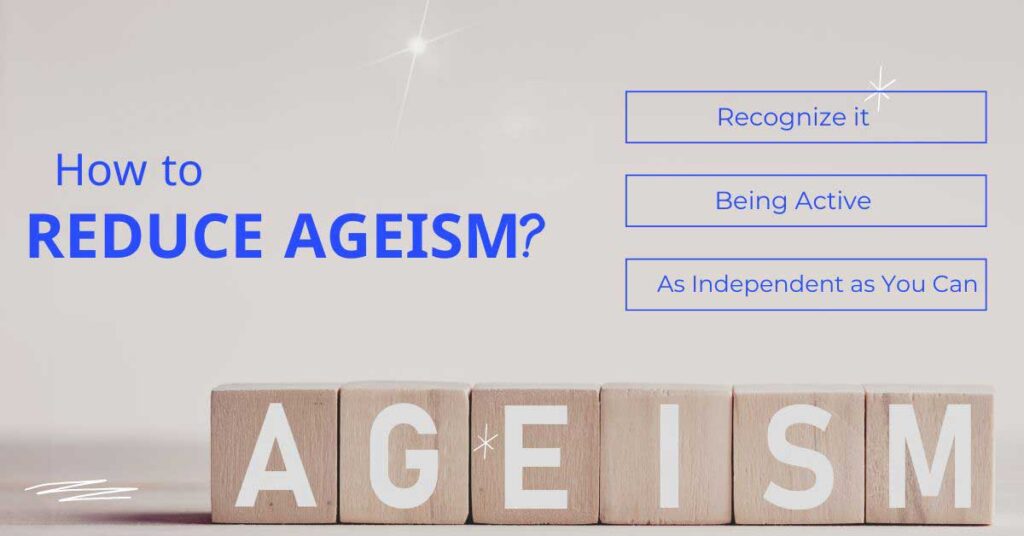Ageism is a type of prejudice in which someone’s worth is determined by their age. is characterized by unpleasant stereotypes about people of all ages, just like racism and sexism. Let me inform you as to whether Is there Such a Thing as Ageism? What is ageism?
The condition of older persons who reported three or more kinds of regular ageism in their daily lives was lower than that of those who experienced fewer.
When compared to those who reported in this older persons who claimed three or so more types of ageism have been less likely to assess their overall health and wellness as good or very good (34 percent vs. 49 percent ).
Older persons who reported experiencing much more likely to get a chronic condition like heart disease and diabetes than those who reported experiencing fewer forms (71 percent vs. 60 percent).
Is There Such A Thing As Ageism?
Table of Contents
Whenever anyone treats someone unjustly because of your age, it is known as ageism or sexual discrimination. It may also have to do with how old people are portrayed in the movie, which has a bigger effect on how the audience perceives them.
Your self-esteem, professional prospects, financial situation, and general quality of life can all suffer from ageism. To ensure that no one is harmed as a result of their age, ageism should be addressed.
Also read: Average Weight for Height in kg According to Age
Where Does Ageism Come From?
In the United States, ageism, or widespread discrimination against older people, is rampant. Older people are stereotyped as similar; alone and lonely, sick, fragile, dependent, depressed, inflexible, and incapable of coping.
In circumstances like the one above, you’ve found that overly paternalistic judgments are common. In many instances, broad generalizations are applied to particular cases without a thorough evaluation of the case’s specific circumstances. When applied to an individual, general population studies of risk variables and prediction abilities are given far too much weight.
Causes of Ageism
Ageism is often blamed on fear of death and disability and the practice of avoiding, segregating, and demeaning older people as coping mechanisms that permit people to ignore their own demise.
Types of Ageism
Institutional Ageism: This happens in institutions that perpetuate the effects of ageism through their actions and policies.
Social Interaction: Age-related changes in the social environment occur during social interaction.
Internalized Ageism: Internalized Ageism is the process of absorbing old-fashioned beliefs and applying these beliefs to themselves.
What are Ageism Examples?
Our age is being blamed for our forgetfulness. It is human to forget. In our twenties, we don’t think twice about losing our keys.
90 percent of marketing budgets are spent on those under the age of 50. The fact that one ageism in America is 50 years old or older is shocking.
Throughout your career, you’ve heard this assertion made in a variety of ways, the majority of the time from the folks the venue is supposed to serve.
Benevolent aging refers to the practice of granting protection/benefits to someone based on their presumed need. Three for every five people consider senior citizens to be lonely.
People aged 65 and up are also thought to be ageism examples. While it is more common in elderly individuals than in younger folks, it is not as common as preconceptions about aging suggest.
With the aging of the baby boomers, the focus is on the approaching healthcare catastrophe.
10 Signs of Ageism in the Workplace:
- Hearing Age-Related Comments or Insults
- Observing a Trend of Only Hiring Younger Employees
- Getting Turned Down For a Promotion
- Being Overlooked for Challenging Work Assignments
- Becoming Isolated or Left Out
- Being Encouraged or Forced to Retire
- Experiencing Layoffs
- Having Your Position Eliminated
- Receiving a Performance Improvement
- Facing Unfair Discipline
Personal Office Holders
Personal officeholders have a different form of contract than employees because they are assigned to carry out a role under the oversight of another person. If you’re an ‘office holder,’ you’re:
- Trustee
- Registered company director or secretary
- Board member of a statutory body
- Judge or tribunal member
- Police officer
- Member of the clergy
When offering a partner position, negotiating conditions with a business partner, or making a decision under the Equal Pay act, a partnership must not discriminate or victimize someone.
Is there Such a Thing as Ageism in Business Partners?
When offering a partnering position, negotiating conditions with a partner, or making a decision under the Equal Protection clause, a partnership must not discriminate or victimize someone.
What is Ageism in Sociology?
A socially created way of thinking about those who are older than us that is founded on unfavorable ideas and aging stereotypes is referred to as “ageism.” Additionally, the inclination to structure society under the premise that everyone is youthful ignores the needs of the elderly.
Perspectives on Aging that are Positive
The majority of survey respondents agreed that as they’ve gotten older, they’ve felt comfortable being themselves (88 percent) and that they have a strong vision (80 percent).
Around two-thirds of older persons think that as they’ve gotten older, their attitudes about aging have been more positive (67 percent) and that their lives are better than they expected (65 percent).
How to Reduce Ageism?

1. Recognize it
Many individuals who commit ageism behaviors do not realize they’re doing it. It’s uncomfortable to confront someone about unsuitable actions, but it’s also the best method to counter the stigma of ageism.
If you observe that someone is omitting you out of conversations and only speaking to young adults, you should get your voice heard. If someone is speaking to you with the tone of a snarky voice, inform them that it’s not necessary.
2. Being Active
lets, others know that you’re an independent, competent and fascinating person. Keep participating in your passions and spending time outdoors and within the community. Take a chance to try new things and meet new people. Stay up-to-date with current news to be able to discuss current events.
3. As Independent as You Can
If there are certain tasks you require help or help with when you grow older, there’s nothing to feel ashamed of. However, being independent can allow you to show others that you don’t need to be treated as a victim or viewed as less worthy due to age.
To overcome the stigma of aging, it is possible to reflect on yourself. There is a possibility of having negative thoughts or attitudes toward yourself. You could, for instance, often make fun of your age or refuse to participate in certain activities because you’re “too old.” If your loved ones witness you talk about yourself this way and think it’s okay for them to share the same view.
What Motivates People to Engage in Ageist Behaviors?
People’s personal anxieties about their own age, death, and dying, which may surface while engaging with an older person, are also linked to ageism. They associate getting older with getting dead, which causes worry, fear, with a need to keep a safe distance from seniors.
According to the Institute on ageism in society, “Aging has been seen as something more to avoid, fear, and conceal at all costs,” “The longer you keep much illusion of looking youth, the longer we keep accepted by society’s impossible standards.”
Frequently Ask Questions
If you’ve been the victim of ageism, what are you doing next?
If you believe you have been the victim of direct or indirect employment discrimination, harassment, or victimization.
As an agency employee, what are your rights?
In terms of discrimination protection, agency workers have the same protections as permanent employees. Agencies must not treat you unfairly because of your age. They can’t, for example, refuse you access to consumers or certain employment placements depending on age.
As a private office holder and business partner, what are your rights?
The Equality Act ensures that personal officeholders or business partners are not discriminated against because of their age.
Which Countries Are The Ones With The Highest Old-Age Population?
Individualistic nations like the United States, Germany, Ireland, South Africa, and Australia are more likely to focus on independence and creating one’s personal identity.
Is Ageism A Problem In Today’s Society?
According to a recent United Nations report on ageism, there are believed to be ageist attitudes held by one person every two in the world. These attitudes negatively impact older people’s physical and mental health as well as their quality of life, which costs societies billions of dollars annually.
How Prevalent Is The Issue Of The Aging Process?
Results From this cross-sectional research investigation of 2035 US adults between 50 and 80 years old, daily ageism was very prevalent ( 93.4%) and was experienced at different levels based on sociodemographic characteristics of the population and was associated with a variety of indicators of poor mental and physical health.
Conclusion
The term ageism refers to have a negative impact on health care delivery for older people on numerous levels. Patients, caregivers, or even clinicians hold the idea that ill-health in older people is unavoidable, that therapies are largely ineffectual, and that late-onset behavioral and psychiatric disorders are frequently misattributed to old age.
Because medications that are recommended have not been sufficiently evaluated in older persons, especially in the oldest-old, there is therapeutic ambiguity as a result of a lack of evidence foundation. I hope you enjoyed this article Is there such a thing as ageism?
Also read: What Does the Term “Dyspnea on Exertion” Mean?


